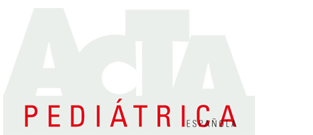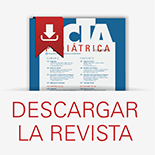Volumen 73 - Número 11 - Diciembre 2015
Publicado en
Originales
Evolución de la función pulmonar en niños con asma grave en tratamiento con omalizumab
Lung function evolution in children with severe asthma treated with omalizumab
L. Moreno-Galarraga1,2, L. Urriza Yeregui1, I. Urriza Ripa1, A. Fernández-Montero2,3, D. Peñafiel Freire1, N. Viguria Sánchez1,21Servicio de Pediatría. Complejo Hospitalario de Navarra. Pamplona (Navarra). 2IdisNa: Instituto de Investigación Sanitaria de Navarra. 3Departamento de Medicina Preventiva y Salud Pública. Universidad de Navarra. Pamplona (Navarra)














